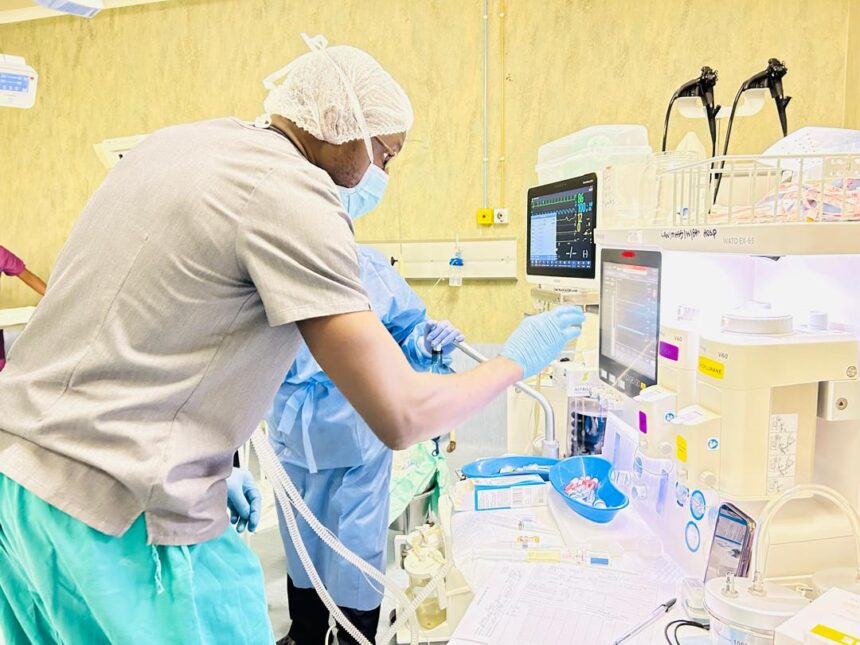WALVIS BAY – Namibians at the coast now have access to life-enhancing plastic surgery through the health ministry’s outreach programme, aimed at bringing services closer to the community
The national plastic surgery campaign, spearheaded by the Namibian Medical Outreach Services, are currently at Walvis Bay District Hospital, conducting these critical services to all Namibians.
The services are offered only to Namibians, whose life is negatively impacted, and not for aesthetic purposes.
This initiative, aimed at addressing the medical needs of vulnerable Namibians, started on 29 September, and will run until 11 October.
Chief medical officer of the Walvis Bay state hospital, Dr Augusto Gawab, said the campaign is crucial for ensuring that underserved communities receive medical interventions they would otherwise struggle to access.
“This campaign is an important part of ensuring that everyone, regardless of their background, can access essential medical care. We are working with a dedicated team of healthcare professionals to address plastic surgery needs across the region. We started seeing patients two weeks ago, and they have now been carefully selected for surgery,” he said.
He said the focus is plastic surgery and reconstructive procedures, addressing conditions such as abnormal fat distribution and post-trauma injuries.
“Some of the cases we have seen involve patients with abnormal fat distribution, which can cause significant medical problems, such as chronic back pain. These patients will benefit from surgeries like breast reductions or abdominal wall reductions to correct their posture and relieve pain,” he noted.
Senior medical officer at Khorixas doctor Ali Mbuyi, who is part of the team, said most patients have conditions like abnormal fat distribution, which can lead to serious health problems.
“For example, some women experience excessively large breasts that cause upper and lower back pain because the skeleton wasn’t designed for such weight distribution. This leads to poor posture and long-term health complications,” he said.
He added that although some surgeries might seem like cosmetic surgeries, they will look at whether the fat distribution is causing a medical problem for the patient.
If it does, it qualifies them for surgery under this campaign.
“Surgical intervention is necessary in cases where painkillers and non-invasive treatments don’t alleviate the problem. Procedures like breast reductions or abdominal surgeries are not just about aesthetics. They are about restoring a patient’s quality of life by addressing the underlying health issues,” he said.
He also highlighted the psychological and social impacts of these conditions, saying they can have a profound impact on a patient’s mental health and social life.
“Patients with keloids or disfigurements, burn marks, for instance, often feel socially excluded due to their appearance. We have seen patients with large keloids growing on their faces or other parts of their bodies following surgery or trauma. Removing these not only helps with their physical recovery but also boosts their confidence, and allows them to reintegrate into society,” he said.
He added that the health ministry remains committed to providing such services across Namibia, ensuring equitable access to healthcare for all.
“The Namibian Medical Outreach Services initiative is available in different regions based on the community’s needs. Our team is working tirelessly to ensure that those in remote areas, who may otherwise not have access to such medical care, are given the attention they deserve,” he said.
The doctors are encouraging all Namibians at the coast to seek assistance if they have similar medical conditions.
“Anyone in the community who believes they might benefit from this campaign should visit their nearest health facility to be assessed. We will compile a list of patients and mobilise the necessary resources, whether it be financial or human, to ensure they receive the treatment they need,” urged Gawab.



